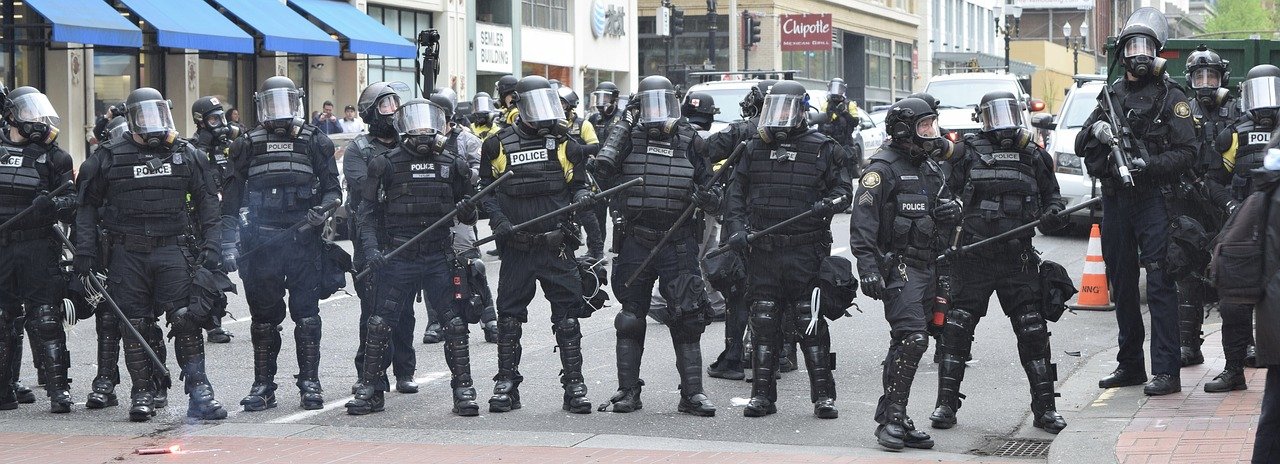Tracing the toxic roots of the Capitol attack
Quote from Steve on January 28, 2021, 10:22 pm
The events on Capitol Hill in Washington are being furiously analyzed and commented on from every possible angle. This is to be expected. There remains much to be known or revealed as to who was involved, in what way, and what diverse motives were at play, from longstanding grievances -- imagined or otherwise -- to the immediately recent grievance of believing Donald Trump that the November 3, 2020 election was stolen from him. A certain humility might be in order, even if in short supply, as the relevant investigative authorities do their job and the analysis evolves. Nevertheless, the "big lie" by Trump that the election was a fraud seems to have been the final decisive catalyst for what happened on January 6, 2021. Even former senate majority leader Mitch McConnell says so, however belatedly.
Nevertheless, it is still possible, and hopefully useful, to offer some historical observations about how America arrived at this terribly dangerous place in its history: how a number of political, economic, and cultural toxic streams came together to create the context for Trump, and ultimately for the fuel that Trump set on fire with his post-election big lie.
Many social and economic bonds have been broken as deregulation, privatization, outsourcing of manufacturing to cheap labour markets, and so-called free trade combined with anti-union laws, conspired to enrich the powerful and make it harder to make ends meet as wages stagnated, and compensating social programs shrunk in the name of austerity so that corporate taxes could be further cut.
Then there was the arrival of "shareholder capitalism" through which corporations abandoned any pretence of caring about community or country or employees, and cared only about the value of their shares. This was aggravated further when corporate CEOs could acquire shares, so they had a personal interest in increasing share value no matter what damage was done to do so.
All of this is by way of explaining why democracies are in trouble.
Liberals and Conservatives in Canada, New Labour and Tories in the U.K., Christian Democrats and Social Democrats in Germany, and more significantly for America, Republicans and Democrats, all embraced the neoliberal ethos -- either out of enthusiasm on the political right, or a combination of accommodation, resignation, and political cowardice on the political centre-left. Witness Clinton, Chrétien, Blair, Schroeder, for example. This was often referred to as the Third Way.
 The events on Capitol Hill in Washington are being furiously analyzed and commented on from every possible angle. This is to be expected. There remains much to be known or revealed as to who was involved, in what way, and what diverse motives were at play, from longstanding grievances -- imagined or otherwise -- to the immediately recent grievance of believing Donald Trump that the November 3, 2020 election was stolen from him. A certain humility might be in order, even if in short supply, as the relevant investigative authorities do their job and the analysis evolves. Nevertheless, the "big lie" by Trump that the election was a fraud seems to have been the final decisive catalyst for what happened on January 6, 2021. Even former senate majority leader Mitch McConnell says so, however belatedly.
The events on Capitol Hill in Washington are being furiously analyzed and commented on from every possible angle. This is to be expected. There remains much to be known or revealed as to who was involved, in what way, and what diverse motives were at play, from longstanding grievances -- imagined or otherwise -- to the immediately recent grievance of believing Donald Trump that the November 3, 2020 election was stolen from him. A certain humility might be in order, even if in short supply, as the relevant investigative authorities do their job and the analysis evolves. Nevertheless, the "big lie" by Trump that the election was a fraud seems to have been the final decisive catalyst for what happened on January 6, 2021. Even former senate majority leader Mitch McConnell says so, however belatedly.
Nevertheless, it is still possible, and hopefully useful, to offer some historical observations about how America arrived at this terribly dangerous place in its history: how a number of political, economic, and cultural toxic streams came together to create the context for Trump, and ultimately for the fuel that Trump set on fire with his post-election big lie.

Many social and economic bonds have been broken as deregulation, privatization, outsourcing of manufacturing to cheap labour markets, and so-called free trade combined with anti-union laws, conspired to enrich the powerful and make it harder to make ends meet as wages stagnated, and compensating social programs shrunk in the name of austerity so that corporate taxes could be further cut.
Then there was the arrival of "shareholder capitalism" through which corporations abandoned any pretence of caring about community or country or employees, and cared only about the value of their shares. This was aggravated further when corporate CEOs could acquire shares, so they had a personal interest in increasing share value no matter what damage was done to do so.
All of this is by way of explaining why democracies are in trouble.
Liberals and Conservatives in Canada, New Labour and Tories in the U.K., Christian Democrats and Social Democrats in Germany, and more significantly for America, Republicans and Democrats, all embraced the neoliberal ethos -- either out of enthusiasm on the political right, or a combination of accommodation, resignation, and political cowardice on the political centre-left. Witness Clinton, Chrétien, Blair, Schroeder, for example. This was often referred to as the Third Way.
